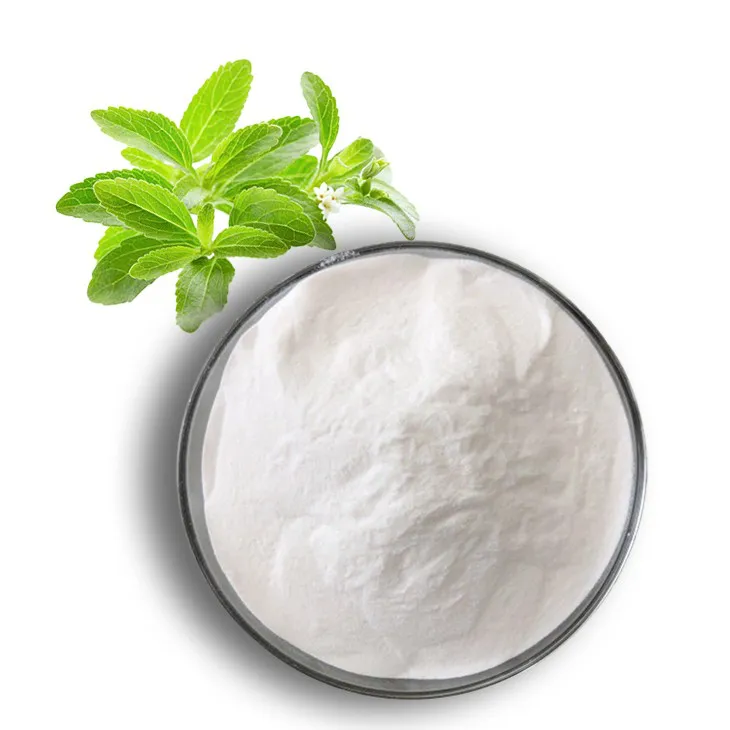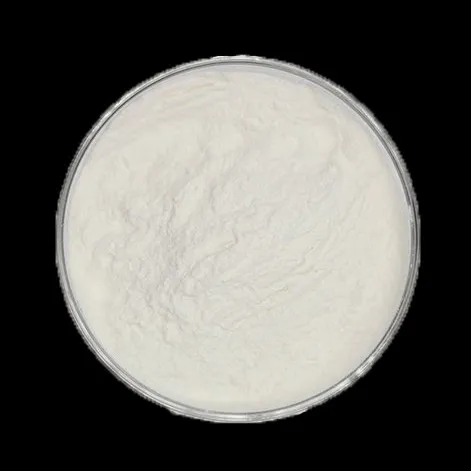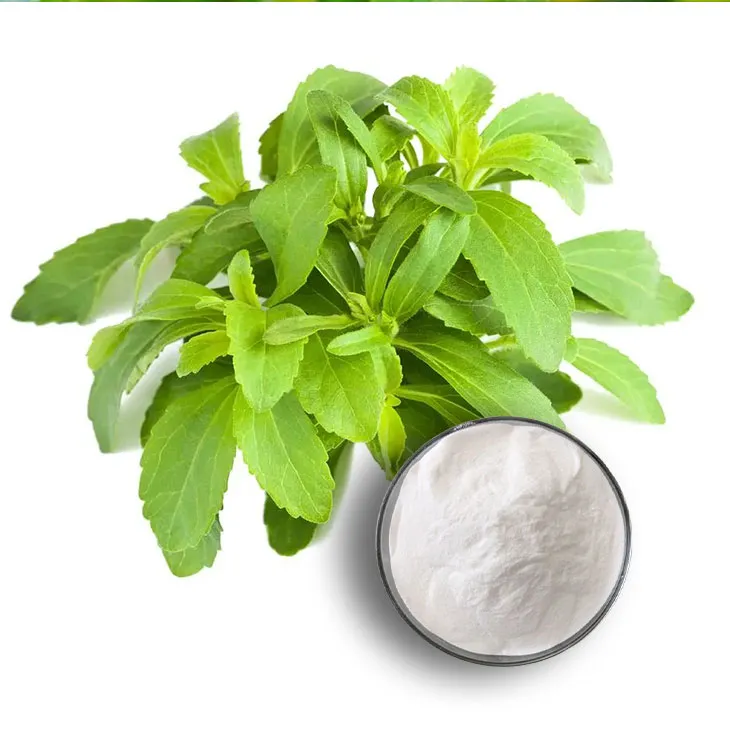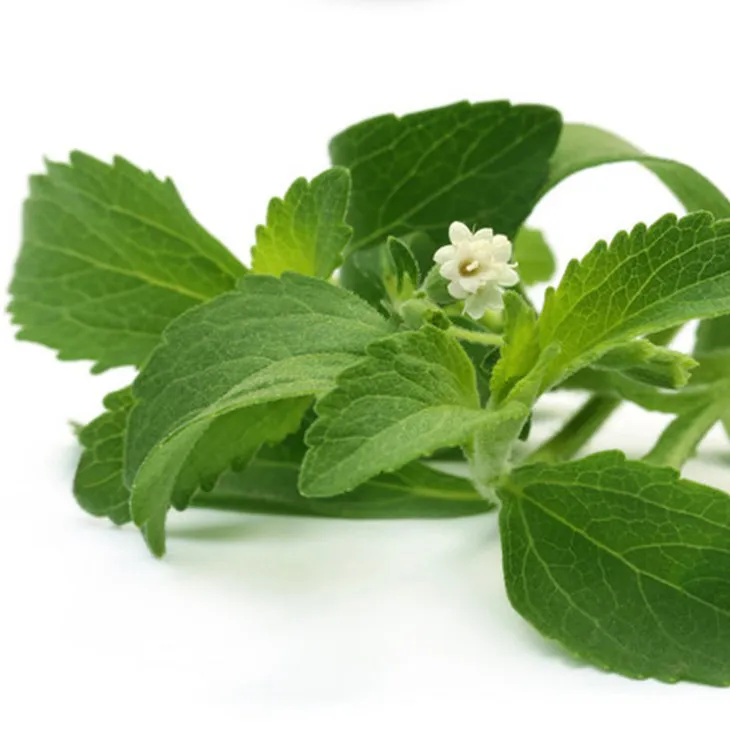- 0086-571-85302990
- sales@greenskybio.com
Expert Tips for Effective Wholesale Purchasing of Stevia Extract.
2024-12-15

1. Introduction
Stevia Extract has become a popular alternative sweetener in the global market. For wholesalers, making effective purchases of Stevia Extract is crucial to ensure quality, cost - effectiveness, and competitiveness in the market. This article will provide in - depth expert tips on various aspects of wholesale Stevia Extract procurement.

2. Understanding Stevia Extract
Before delving into the purchasing tips, it is essential to have a solid understanding of stevia extract.
2.1 What is Stevia Extract?
Stevia extract is derived from the leaves of the Stevia rebaudiana plant. It contains natural sweet compounds, such as steviol glycosides, which are much sweeter than sugar but have negligible calories. This makes it an attractive option for consumers looking for a low - calorie sweetener.
2.2 Different Grades of Stevia Extract
There are different grades of stevia extract available in the market. High - grade stevia extract typically has a higher purity level of steviol glycosides and less impurities. It is often more expensive but offers better taste and quality. On the other hand, lower - grade extracts may have a lower concentration of the active compounds and may contain more unwanted substances. Wholesalers need to be aware of these differences to meet the requirements of their customers.

3. Purity Verification
Ensuring the purity of stevia extract is of utmost importance in wholesale purchasing.
3.1 Laboratory Testing
One of the most reliable ways to verify the purity of stevia extract is through laboratory testing. Wholesalers should look for suppliers who can provide certificates of analysis (COAs) from accredited laboratories. These COAs should detail the composition of the stevia extract, including the percentage of steviol glycosides, the presence of any contaminants, and other relevant chemical properties.
3.2 Supplier Reputation
A supplier with a good reputation is more likely to provide pure stevia extract. Research the supplier's history, customer reviews, and any industry certifications they may hold. A long - standing supplier with positive feedback from other wholesalers or manufacturers is generally a safer bet. Additionally, suppliers who are members of industry associations often adhere to higher quality standards.
3.3 Visual and Sensory Inspection
Although not as accurate as laboratory testing, visual and sensory inspection can also provide some clues about the purity of stevia extract.
- Visual inspection: High - quality stevia extract should have a consistent color and texture. If the extract appears cloudy, has sediment, or an unusual color, it could be a sign of impurities or improper processing.
- Sensory inspection: The taste and smell of stevia extract can also indicate its quality. Pure stevia extract should have a clean, sweet taste without any off - flavors or strange odors. Any bitterness or chemical smells may suggest contamination or low - quality raw materials.

4. Market Trends
Staying informed about market trends is essential for making effective wholesale purchases of stevia extract.
4.1 Growing Demand
The demand for stevia extract has been steadily increasing in recent years. Consumers are becoming more health - conscious and are looking for alternatives to traditional sweeteners. This trend is driven by factors such as the rising prevalence of diabetes, obesity, and a general preference for natural products. Wholesalers should anticipate this growing demand and ensure they have a sufficient supply of stevia extract to meet the market needs.
4.2 Pricing Trends
- The price of stevia extract can be influenced by various factors, including raw material availability, production costs, and market competition.
- Raw material availability: If there are issues with the supply of Stevia rebaudiana plants, such as crop failures or shortages, the price of stevia extract is likely to increase. Wholesalers need to monitor the agricultural situation in stevia - producing regions to predict price fluctuations.
- Production costs: Factors like energy prices, labor costs, and technological advancements in extraction methods can impact production costs. Newer, more efficient extraction technologies may lead to lower production costs in the long run, which could potentially result in lower wholesale prices.
- Market competition: The presence of multiple suppliers in the stevia extract market can lead to price competition. Wholesalers should compare prices from different suppliers and take advantage of competitive offers without sacrificing quality.
4.3 New Product Developments
The stevia extract market is constantly evolving, with new product developments emerging regularly.
- Formulations: Suppliers are developing new formulations of stevia extract to improve its solubility, stability, and taste. For example, some stevia extracts are now available in a more soluble powder form, which is easier to use in various applications such as beverages and food products.
- Blends: There is an increasing trend in creating blends of stevia extract with other sweeteners. These blends can offer a more balanced taste profile, mimicking the sweetness of sugar more closely. Wholesalers should keep an eye on these new product developments as they may offer new opportunities for their customers.

5. Negotiation Skills
Effective negotiation skills are crucial when making wholesale purchases of stevia extract.
5.1 Researching the Market
Before entering into negotiations, wholesalers should thoroughly research the market. This includes understanding the current market prices, the range of qualities available, and the terms and conditions offered by different suppliers.
5.2 Building Relationships
Establishing a good relationship with suppliers can give wholesalers an edge in negotiations.
- Communication: Maintaining open and honest communication with suppliers is key. Regularly update them on your business needs and any changes in your requirements. This can help build trust and make the supplier more willing to negotiate favorable terms.
- Long - term partnerships: Consider the possibility of forming long - term partnerships with suppliers. Suppliers may be more inclined to offer better prices, payment terms, or quality assurances if they see the potential for a long - term business relationship.
5.3 Quantity and Pricing
- Bulk purchases: Buying in large quantities can often lead to lower unit prices. Wholesalers should calculate their projected demand accurately and negotiate with suppliers based on their ability to make bulk purchases. However, they also need to be cautious not to overstock, especially if there are risks of price fluctuations or product expiration.
- Price breakdown: Request a detailed price breakdown from the supplier. This can help identify any hidden costs and allow for more targeted negotiation. For example, if the price includes transportation costs, wholesalers may be able to negotiate a lower price by arranging their own transportation or finding a more cost - effective shipping option.
5.4 Quality and Specifications
- Defining quality standards: Clearly define the quality standards you require for the stevia extract. This includes aspects such as purity, grade, and any specific chemical or physical properties. Make sure these standards are included in the contract with the supplier.
- Penalties for non - compliance: Negotiate penalties for non - compliance with the agreed - upon quality standards. This can act as an incentive for the supplier to ensure the quality of the stevia extract they provide.
6. Supplier Selection
Choosing the right supplier is a critical step in effective wholesale purchasing of stevia extract.
6.1 Geographic Location
- The geographic location of the supplier can have several implications. Suppliers closer to the source of stevia production may have access to fresher raw materials and potentially lower transportation costs. For example, if the Stevia rebaudiana plants are mainly grown in South America, a supplier located in that region may be able to offer stevia extract at a more competitive price due to reduced shipping distances.
- However, it is also important to consider factors such as political stability, trade regulations, and infrastructure in the supplier's location. A country with unstable political conditions or complex trade regulations may pose risks to the supply chain.
6.2 Production Capacity
Ensure that the supplier has sufficient production capacity to meet your wholesale needs. A supplier with limited production capacity may not be able to fulfill large - scale orders in a timely manner, which could disrupt your business operations.
6.3 Flexibility
- Look for a supplier who is flexible in terms of order quantities, delivery schedules, and product specifications. For example, if your business experiences seasonal fluctuations in demand, a flexible supplier can adjust the order quantity accordingly without causing inventory management problems.
- Flexibility in product specifications can also be beneficial. If you require a customized formulation of stevia extract, a supplier who can accommodate such requests can give you a competitive advantage in the market.
7. Logistics and Shipping
Logistics and shipping play an important role in the wholesale purchase of stevia extract.
7.1 Packaging
- Proper packaging is essential to protect the stevia extract during transportation. Suppliers should use packaging materials that are moisture - proof, light - proof, and sturdy enough to prevent damage. For example, stevia extract in powder form may be packaged in sealed plastic or aluminum - lined bags to keep it fresh and prevent clumping.
- Consider the environmental impact of packaging. With increasing consumer awareness of environmental issues, choosing suppliers who use recyclable or biodegradable packaging can be a selling point for your business.
7.2 Transportation Modes
- Different transportation modes have their own advantages and disadvantages. Sea freight is generally more cost - effective for large - volume shipments but may have longer transit times. Air freight is faster but more expensive. Wholesalers need to balance cost and time requirements when choosing a transportation mode.
- Consider the reliability of the transportation service. A reliable carrier with a good track record of on - time deliveries can help ensure that your stevia extract arrives at the destination in a timely manner.
7.3 Customs and Import Regulations
- Be aware of the customs and import regulations in your country. Different countries may have specific requirements regarding the import of stevia extract, such as product labeling, documentation, and quality inspections. Failure to comply with these regulations can result in delays, fines, or even the rejection of the shipment.
- Work with a customs broker or freight forwarder who has experience in handling stevia extract imports. They can help you navigate the complex regulatory environment and ensure a smooth import process.
8. Conclusion
Effective wholesale purchasing of stevia extract requires a comprehensive understanding of various factors, including purity verification, market trends, negotiation skills, supplier selection, and logistics. By following the expert tips outlined in this article, wholesalers can make more informed decisions, ensure the quality of their purchases, and gain a competitive edge in the market.
FAQ:
What are the key factors to consider when verifying the purity of stevia extract in wholesale purchasing?
When verifying the purity of stevia extract in wholesale purchasing, several key factors need to be considered. Firstly, look for certificates of analysis from reliable laboratories. These certificates should detail the composition of the extract, including the percentage of stevioside and rebaudioside, which are the main sweet components. Secondly, check the manufacturing process. Reputable manufacturers usually follow strict quality control procedures. Thirdly, consider the reputation of the supplier. A well - established supplier with a history of providing high - purity products is more likely to be reliable. Additionally, you can also request samples for independent testing to ensure the purity meets your requirements.
How can one stay updated on the market trends of stevia extract for wholesale?
To stay updated on the market trends of stevia extract for wholesale, one can start by subscribing to industry - specific trade magazines and newsletters. These often contain valuable information about the latest market developments, including price fluctuations, new product launches, and emerging applications. Another way is to attend relevant trade shows and conferences. Here, you can network with industry experts, suppliers, and other wholesalers, and gain first - hand insights into the market trends. Online market research platforms can also be useful. They provide data on market size, growth rate, and competitive landscape. Additionally, following key players in the stevia extract industry on social media can keep you informed about their latest announcements and strategies.
What negotiation skills are essential for effective wholesale purchasing of stevia extract?
For effective wholesale purchasing of stevia extract, several negotiation skills are essential. Firstly, do your homework before entering negotiations. Know the market price range, the quality standards, and the financial position of the supplier. This knowledge will give you an edge during the negotiation. Secondly, be clear about your requirements and expectations. Communicate your desired quantity, price, delivery terms, and quality specifications clearly. Thirdly, try to find common ground. Look for areas where both you and the supplier can benefit, such as long - term partnerships or volume - based discounts. Fourthly, be patient and don't rush the negotiation process. Sometimes, waiting for the right moment can lead to a more favorable deal. Finally, be prepared to walk away if the terms are not acceptable. This shows the supplier that you are serious about getting a good deal.
How does the quality of stevia extract affect its wholesale price?
The quality of stevia extract has a significant impact on its wholesale price. Higher - quality stevia extract, which has a higher purity level and better taste profile, generally commands a higher price. Purity is crucial because a purer extract contains a higher concentration of the sweet - tasting components like stevioside and rebaudioside. Suppliers may also invest more in the production process of high - quality extract, which can include using better raw materials and more advanced extraction techniques. Additionally, factors such as the origin of the stevia plants and the manufacturing conditions can also influence the quality and, consequently, the price. For example, stevia extract sourced from organically grown plants may be more expensive due to the higher cost of production.
What are the potential risks in wholesale purchasing of stevia extract?
In wholesale purchasing of stevia extract, there are several potential risks. One risk is the quality issue. If the purity or safety of the extract is not as promised, it can lead to problems with the end - product, such as an off - taste or potential health concerns. Another risk is the price fluctuation. The stevia extract market can be volatile, and if you enter into a long - term contract without proper price protection, you may end up paying more than the market value. Supplier reliability is also a concern. If the supplier fails to deliver on time or goes out of business, it can disrupt your supply chain. Additionally, regulatory changes in the stevia industry can pose a risk. New regulations regarding the use or labeling of stevia extract may require adjustments to your business operations.
Related literature
- Stevia Extract: Production, Properties and Applications"
- "Market Trends of Stevia Extract in the Global Market"
- "Quality Control in Stevia Extract Procurement"
- ▶ Hesperidin
- ▶ Citrus Bioflavonoids
- ▶ Plant Extract
- ▶ lycopene
- ▶ Diosmin
- ▶ Grape seed extract
- ▶ Sea buckthorn Juice Powder
- ▶ Fruit Juice Powder
- ▶ Hops Extract
- ▶ Artichoke Extract
- ▶ Mushroom extract
- ▶ Astaxanthin
- ▶ Green Tea Extract
- ▶ Curcumin
- ▶ Horse Chestnut Extract
- ▶ Other Product
- ▶ Boswellia Serrata Extract
- ▶ Resveratrol
- ▶ Marigold Extract
- ▶ Grape Leaf Extract
- ▶ New Product
- ▶ Aminolevulinic acid
- ▶ Cranberry Extract
- ▶ Red Yeast Rice
- ▶ Red Wine Extract
-
Lemon Extract
2024-12-15
-
Eyebright Extract
2024-12-15
-
Curcuma Longa Extract
2024-12-15
-
Fenugreek Extract Powder
2024-12-15
-
Thunder God Vine Extract
2024-12-15
-
Maitake Mushroom Extract
2024-12-15
-
Scutellaria Extract
2024-12-15
-
Curcumin
2024-12-15
-
Feverfew Extract
2024-12-15
-
Sophora Japonica Flower Extract
2024-12-15





















